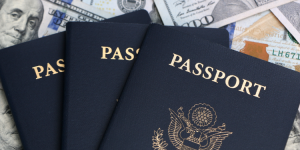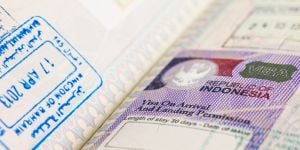
The Immigration Act of 1990 imposed a limit on the number of Green Cards that the United States can issue every year. Currently, about 1 million Green Cards are issued yearly. Most are Family-based Green Cards, while Employment-based Green Cards have a stricter cap of 140,000 per year. Furthermore, a maximum of 7% of these permits can go to individuals from a single foreign country. Such restrictions have created exceedingly long application backlogs for citizens of the top sending countries, namely Mexico, India, China and the Philippines.
Many expats from top-sending countries still haven't received their Green Card a decade after applying
Mexico, India, China and the Philippines are the countries where most Green Card applicants are from. According to Statistica, in 2021, nearly 110,000 Mexicans, nearly 95,000 Indians, nearly 50,000 Chinese and nearly 30,000 Filipinos obtained a Green Card. These numbers remain far less than the actual number of expats from these countries who've completed the application process.
According to the immigration advisory firm Boundless, Family-based Green Cards tend to be issued within 1-2 years, but Employment-based Green Cards take, on average, 2-3 years. Sadly, for expat workers from the four aforementioned countries, an Employment-Based Green Card can take as much longer, even as much as 10 or 15 years! Data from the US Immigration and Citizenship Services (UCSI) shows that, in 2021, there were nearly 900,000 approved Green Card petitions which were still backlogged. This was because the cap on the maximum number of Green Cards that can be legally issued had already been met. Over 80% of approved petitions from Indian expats were in that backlog. In 2023, the situation hasn't changed much.
When interviewed in May about this frustrating situation for Indian expats, Douglas Rand, a senior advisor at the UCSI, explained to the Press Trust of India that it comes down to a simple supply-and-demand problem. Because the law states that each sending country can get a maximum of 7% of all Green Cards per year, only 25,620 Indian applicants can get this permanent residence permit every year.
Many expats stuck in the backlog feel that this is deeply unfair. They think that the law should be reformed so that the cap might be proportionally adjusted to the population of each sending country and to the average number of expats it sends to the US every year. It feels unfair that expats with less qualifications and less years of work experience in the US get their Green Card before thousands of Mexicans, Indians, Chinese and Filipinos simply because they were born in a country with fewer applicants. The pro-immigration lobby FWD, for instance, says that it can realistically take Canadians less than a year to obtain a Green Card.
Recent reforms and proposed reforms, even if moderate, might ease the situation
Thankfully, a few things are being done to make these expats' immigration situation a bit easier. The US government and its advisors haven't gone as far as proposing to remove the caps established in 1990, but they've been coming up with other more moderate reforms.
In June, the US government approved a pilot program that allows laid-off Indian expats, who were badly affected by the corporate downsizing in the tech industry, to get a 1-year Employment Authorization Document (EAD) while they're looking for another employer to sponsor them for the H-1B visa. They need to present compelling circumstances of why leaving the US will affect their lives negatively. For instance, they can show that they will incur severe financial loss, already have a mortgage loan in the US, or have children attending American schools.
In 2022, thanks to the effort of the President's Advisory Commission on Asian Americans, Native Hawaiian and Pacific Islanders, the visa appointment wait time was shortened. It's currently a reasonable 2-4 weeks. More staff have been hired in American embassies, interview slots in these embassies have been increased, virtual service centers are being set up to provide some services, and some visas can now be applied for far in advance.
The Commission is now proposing another reform that will specifically help Green Card applicants. It is suggesting that unused Employment-Based Green Cards be recaptured and re-issued to new applicants. Since 1992, there have been 230,000 unused Green Cards. Some of them were never used because bureaucratic delays made the original applicants' change their plans. The Commission is proposing that a portion of these unused permits be added to the yearly quota of Green Cards so as to allow current expats to utilize them. It is yet to be seen if the US government adopts this suggestion.



















